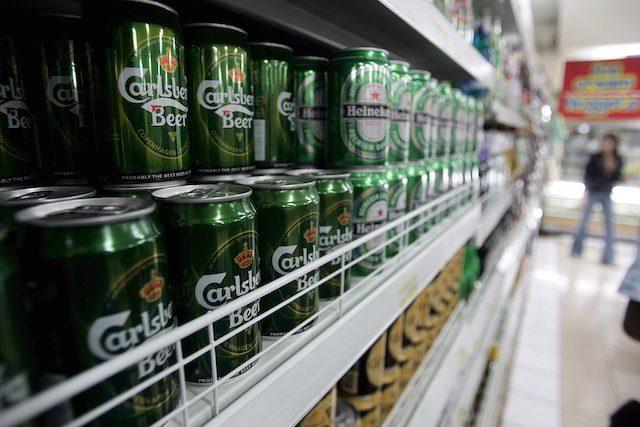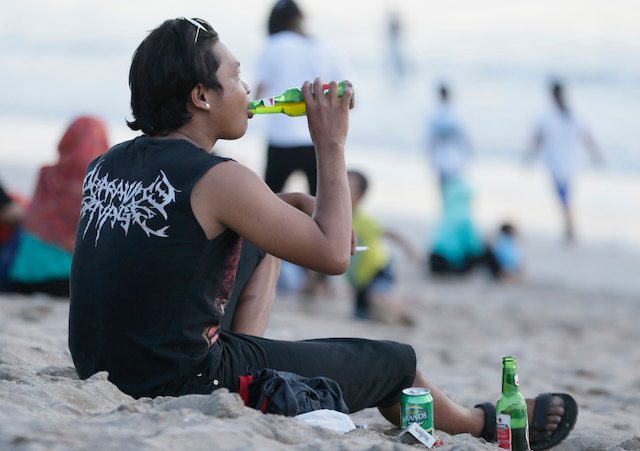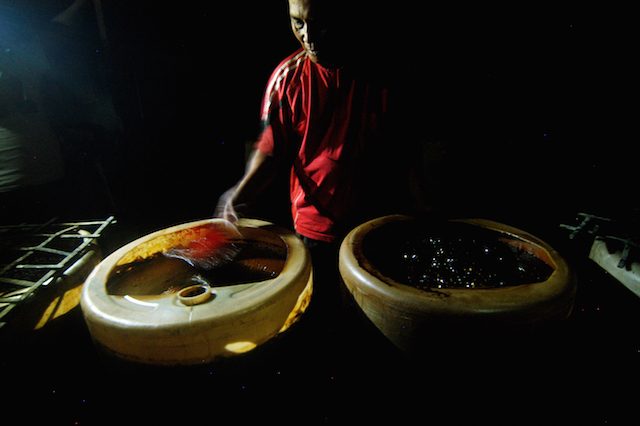SUMMARY
This is AI generated summarization, which may have errors. For context, always refer to the full article.

JAKARTA, Indonesia – From today, April 16, you won’t find beer and most other alcoholic drinks at Indonesia’s 16,000 minimarkets and 55,000 other small retailers.
Alcohol-drinkers in the world’s most populous Muslim-majority country will either have to go to restaurants and bars or buy from groceries and supermarkets to get their fix.
The regulation banning minimarkets and other small stores from selling “Class A” alcoholic beverages – those with less than 5% alcohol content such as beer – is all about protecting the youth, proponents say.
Alcohol is like a “machine killing our youth”, lawmaker Fahira Idris, the founder of the National Anti-Alcohol Movement and a leading proponent of the measure, told AFP.
“Our volunteers often see minors buying alcohol with ease in minimarkets,” she said.
A ministerial regulation issued in 2014 states that alcoholic drinks can only be sold to consumers aged 21 or above after showing an ID.
“Despite enhanced surveillance, (minimarkets) still sell to minors,” Trade Minister Rachmat Gobel has said, according to Bisnis.com. “The government chooses to forbid the sale of these products to save the young generation’s future.”
They are now calling on the public to report stores that violate the ban.
Unhappy brewers
Indonesians are among the lowest consumers of alcohol per capita in Southeast Asia – more than 90% of the population describe themselves as Muslim, and drinking is against Islamic law.
However, alcohol is widely available in bigger cities and tourist areas, and industry data shows beer sales have been growing annually by roughly 5%, despite the already heavy taxes imposed on it.
A director of an Indonesian company that produces and distributes alcohol, who asked not to be named because he isn’t authorized to speak to the media, told Rappler the regulation’s direct impact to the alcohol industry is about 40%.
“On the surface, it doesn’t look like a lot because minimarkets contribute 10% to 20% to alcohol sales,” the director said.
“But the regulation also bans traditional small markets, which have a bigger contribution, and it doesn’t recognize wholesalers, who are part of the distribution chain.”
Overall, the industry could be taking a 50% hit, the source said.
Beyond the alcohol industry

Islamic groups have long been trying to get the government to restrict alcohol sales in the country. It seems a new proposal or draft law attempting to do that appears every year.
Some cities, like Depok just outside Jakarta, have taken to imposing restrictions on their own. But this regulation is the first major nationwide restriction to come into force.
Brewers aren’t the only ones who are unhappy. The regulation would also affect retailers, companies that produce bottles and labels, and the tourism industry.
“Our concerns with the current announced policies is that they will impact some of the smaller retail businesses and tourism,” Ivan Menezes, the CEO of Guinness producer Diageo, told Bloomberg in March.
Even parking attendants at minimarkets have complained the regulation would reduce their earnings.
There had been particular anxiety about how the ban might affect tourism on the Hindu-majority resort island of Bali.
Gobel – who was shouted at during an ill-tempered meeting with community leaders in Bali last weekend – has now pledged to ease the restrictions on the island to ensure street vendors can still sell beer at the beach.
Prohibition?

Others, like Jakarta Governor Basuki “Ahok” Tjahaja Purnama, have warned that the restrictions on beer sales could lead to unwanted consequences: increased smuggling and consumption of tainted alcohol. (READ: 9 Indonesians die after drinking tainted alcohol)
High-potency concoctions sold illegally on the streets – kill an untold number of drinkers in Indonesia every year.
“To limit the market, and to limit where you can purchase the controlled alcohol, it’s just a nightmare,” said Australian Lhani Davies, whose 19-year-old son Liam died from methanol poisoning after being served homebrewed spirits at a bar in Indonesia.
According to the International Monetary Fund, countries with relatively higher tax rates, more laws and regulations, and a weak rule of law tend to have larger shadow or underground economies.
“Do you want to go back to the Al Capone era?” the governor said, referring to the infamous gangster who profited from bootleg alcohol during the prohibition era in the United States in the 1920s. (READ: Jakarta governor asks: What’s wrong with beer?)
The Indonesian Brewers Association, which represents the country’s major beer distributors, said the regulation amounted to prohibition in smaller towns, where big supermarkets are scarce.
But all this could just be the start. Islamic parties have proposed a law completely banning the consumption, sale, production and distribution of all drinks containing more than 1% alcohol. – Reports from Jet Damazo-Santos and Agence France-Presse/Rappler.com
Add a comment
How does this make you feel?
There are no comments yet. Add your comment to start the conversation.